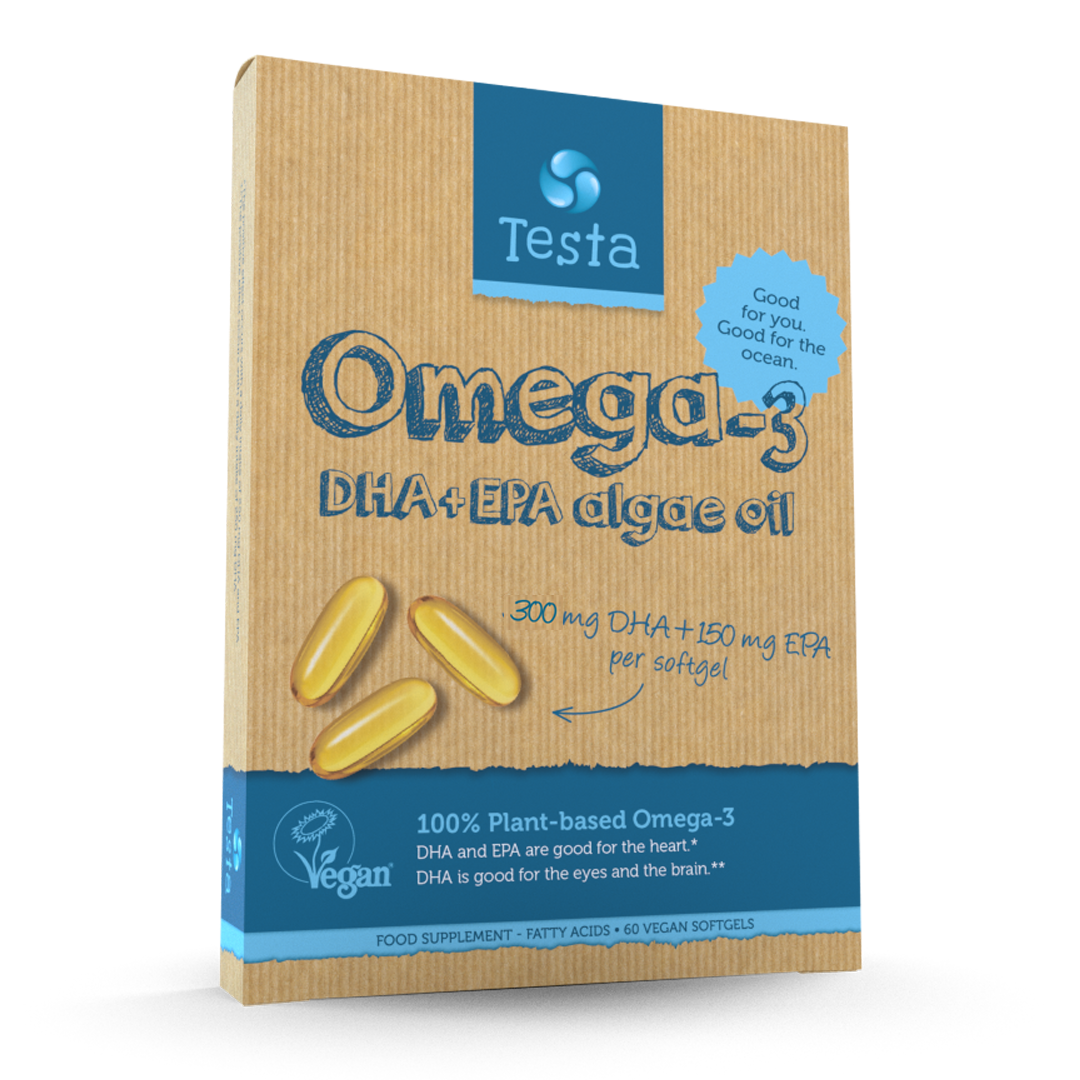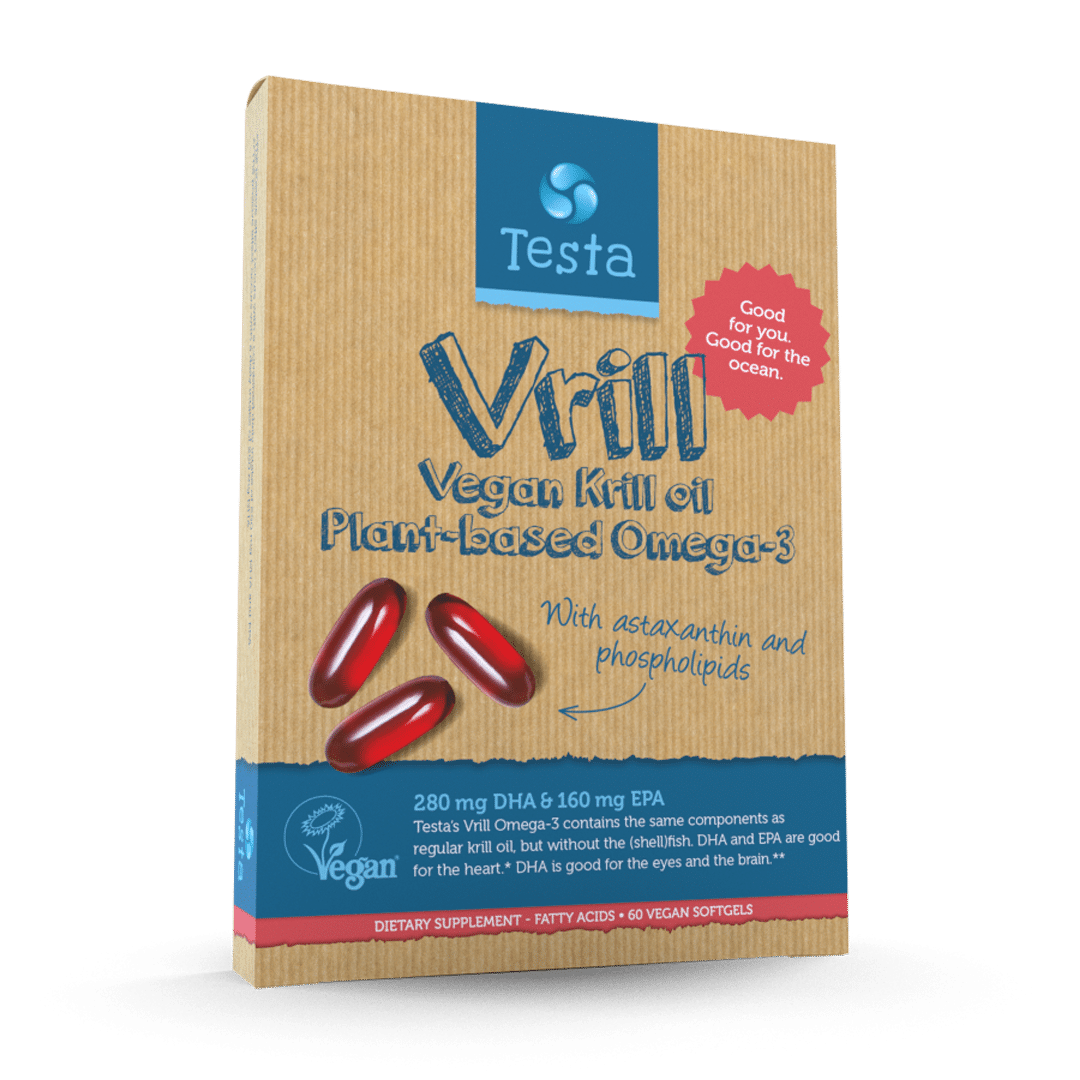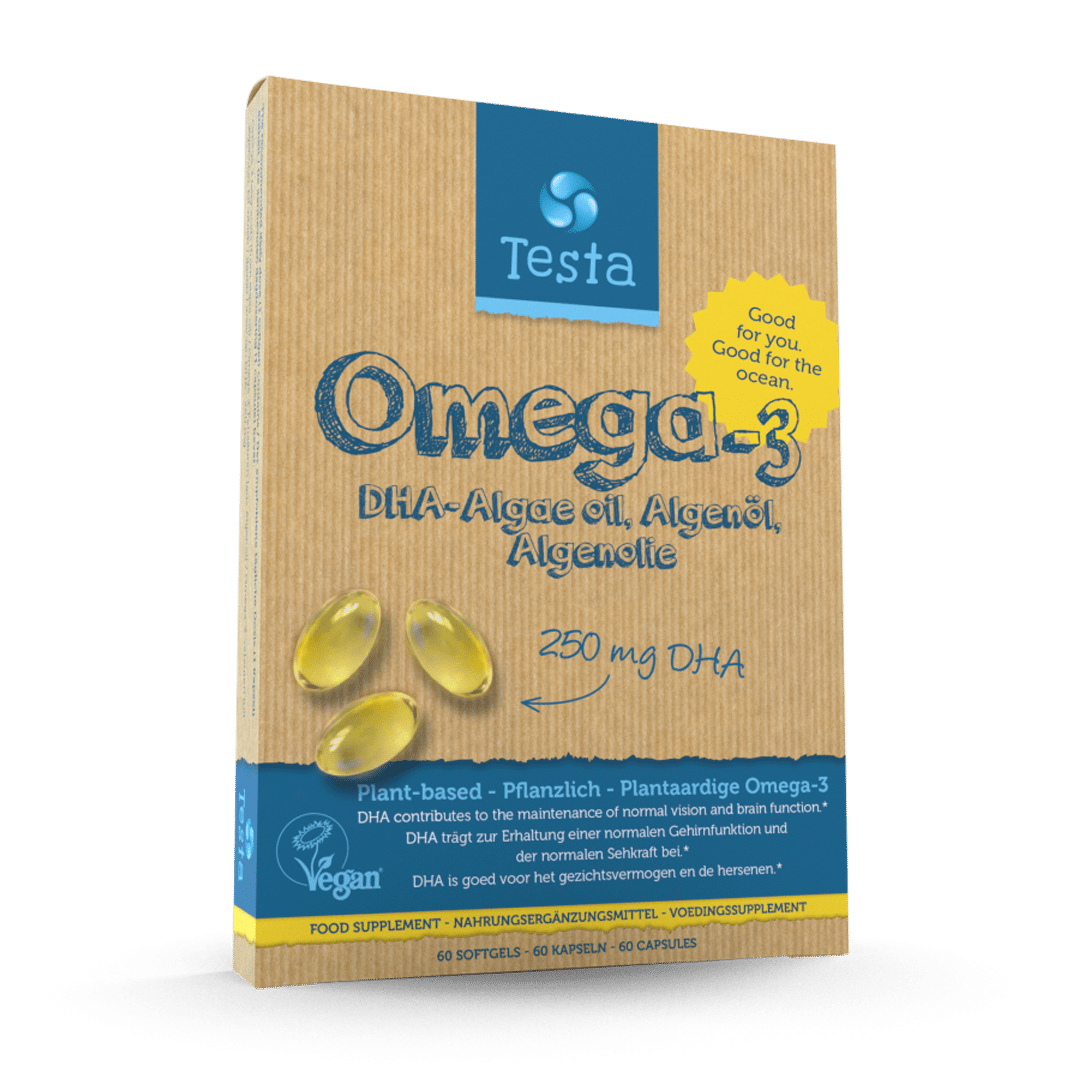What Are The Most Common Omega-3 Deficiency Symptoms?
Why is it important to get enough omega-3 fatty acids?
Omega-3s are essential fatty acids, meaning that the body cannot produce them and must therefore obtain them through food. The best-known omega-3 fatty acids are alpha-linolenic acid (ALA), eicosapentaenoic acid (EPA) and docosahexaenoic acid (DHA).
ALA is one of the most well-known omega-3 fatty acids that can be found in linseed oil, walnuts, hemp seeds and chia seeds. However, DHA and EPA are the fatty acids that your body needs and that contribute to your health. It is therefore best to take these two forms of omega-3 directly.
Your body can produce EPA and DHA from ALA, but this process is not optimal in most people and results in only small amounts of EPA and DHA. Sources of EPA and DHA are mainly fish and shellfish. However, fish, like humans, cannot produce EPA and DHA themselves, but obtain it from the algae they eat.
How To Know If You Are Omega-3 Deficient
If you’re getting at least 250mg of omega-3s per day, you should be covered. Go through this quick checklist to learn more about the common symptoms associated with omega-3 deficiency, which affects around 85% of the global population.
Do you have beautiful, radiant skin?
Omega-3 fatty acids are important building blocks for our cell membranes and therefore important for the proper functioning of every cell. The fats ensure that the membrane is flexible and yet strong, so that waste products can leave the cells and nutrients can enter.
Getting enough omega-3 keeps your cell membranes supple and healthy. Since skin cells also have membranes, an omega-3 deficiency can cause your skin to lose moisture, resulting in dry skin or skin aging. If any of these symptoms sound familiar, consider testing your omega-3 levels!
How have your focus and memory been lately?
Our brain is a fatty lobe. About 60% of the brain is made up of fat. Omega-3 fatty acids play an important role in the communication between our brain cells.
When there are many omega-3 fatty acids in the walls of brain and nerve cells, they become more flexible and are better able to generate and transmit electrical and chemical signals. This is not only true for the nerve and brain cells, but also for the synapses (the connections between these cells).
If the function of these cells and synapses improve, you will be able to notice a difference in focus, memory and other brain functions.
Do you have a strong and healthy heart?
Omega-3 fatty acids play an important role in keeping the heart and blood vessels healthy, because they have a positive effect on the electrical activity of the heart cells. A meta-analysis with 173,000 patients showed that of the four therapies, omega-3 contributed most to keeping the heart and blood vessels healthy.**
Are you at risk of an omega-3 deficiency?
Several factors can increase the risk of omega-3 deficiency, including:
• Following a plant-based diet (vegan or vegetarian) without supplementing with EPA and DHA.
• Following a diet low in healthy fats and high in processed foods.
• Relying on sources rich in ALA (such as flaxseed or chia seeds), which convert too little to DHA.
• Not taking your omega-3 supplements regularly or taking too low a dosage.
• If you meet any
If you think any of these apply to you, it may be time to increase your omega-3 intake or test your levels.
How to get enough omega-3s on a plant-based diet
If you follow a vegan or vegetarian diet, you probably eat plenty of foods that contain ALA, like flaxseeds, walnuts, and hemp seeds. This is important, and it helps better absorb omega-3. However, our body’s ability to convert ALA into DHA and EPA is extremely limited—without direct sources of DHA and EPA, you may not be getting enough omega-3.
Luckily, there is a healthy, sustainable, and fish-free solution. Since fish and krill get their omega-3s from eating algae, you can skip the fish and go straight to the source by supplementing with DHA and EPA from algae oil!
Why choose algae-based omega-3s?
• 100% plant-based and vegan-friendly
• A direct source of DHA and EPA (no conversion from ALA needed, so you get all the benefits)
• A sustainable alternative to fish oil
Algae-based omega-3 supplements offer a pure and ocean-friendly way to meet your omega-3 intake without impacing marine biodiversity.
Frequently Asked Questions About Omega-3 Deficiency and Symptoms
What causes omega-3 deficiency symptoms?
Symptoms of an omega-3 deficiency mainly occur when the body has too low a level of DHA and EPA. These forms of omega-3 fatty acids have the highest bioavailability. Because our body cannot produce these essential fatty acids itself, we have to get them from food or supplements. The non-fish eaters among us are generally at greater risk of a too low omega-3 index.
How do I know if I need more omega-3?
The best way to find out is to do an omega-3 index test. However, it is also possible to take a closer look at your diet. If you do not meet a minimum daily intake of 250 mg DHA and EPA, through food or supplements, there is a good chance that you are not getting enough. Because omega-3 plays a key role in the health of your heart, brain and eyes, among other things, getting enough omega-3 is crucial.
How much DHA and EPA do I need per day?
Most health experts agree that adults need at least 250-500 mg of DHA and EPA (combined) per day to meet their needs. During pregnancy, or when following a plant-based diet, it is important to get more than that. Algal oil is the easiest way to meet this recommended daily dose. Plus, it is pure, sustainable, and vegan-friendly.
Is omega-3 from algae oil as effective as omega-3 from fish oil?
Yes! Algae is the original source of omega-3 fatty acids—fish get their DHA and EPA from algae. Studies show that omega-3 from algae has the same benefits as omega-3 from fish oil. So in terms of effectiveness, it’s the same, but unlike fish and seafood, algae oil is mercury-free, vegan, and has no negative impact on the ocean.
How long does it take before I notice a difference after taking omega-3?
The time it takes to feel the effects of increasing omega-3 intake varies from person to person. Some report noticable improvements after a few weeks, while others take longer to notice a difference.
In fact, sometimes you won’t even notice a difference, but your body will! Consistency is key. Sufficient and regular intake of DHA and EPA is the best way to have a green omega-3 index in the long term.
References
1. Hibbeln J. Fish consumption and major depression. The Lancet 1998; 351(9110): 1213.
2. Studer M. Briel M. Leimenstoll B et al. Effect on different antilipidemic agents and diets on mortality: a systematic review. Arch intern med. 2005; 165: 725-730.
3. Biomed Hub. 2017 Feb 21;2(1):1-12. doi: 10.1159/000455818. eCollection Jan-Apr 2017.
Our top 3
100% plant-based omega-3
Choose
#Fishfree
Our 3 bestsellers each have their own specific
effect. Whatever Testa product you choose, you always opt for a fish-free and 100% plant-based alternative.
DHA & EPA Omega-3 Algae Oil Capsules
DHA & EPA Omega-3 capsules from algae oil. Pure, fish-free, and 100% plant-based.

Vegan Krill Oil DHA & EPA Omega-3
Pure, fish-free and 100% vegan. Good for heart, brain and eyes.

